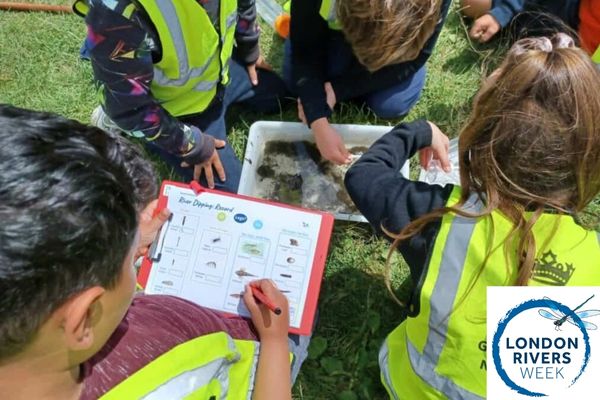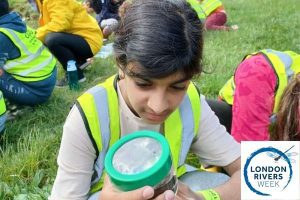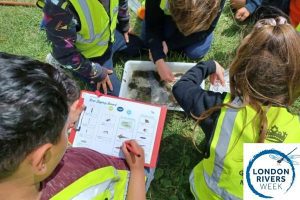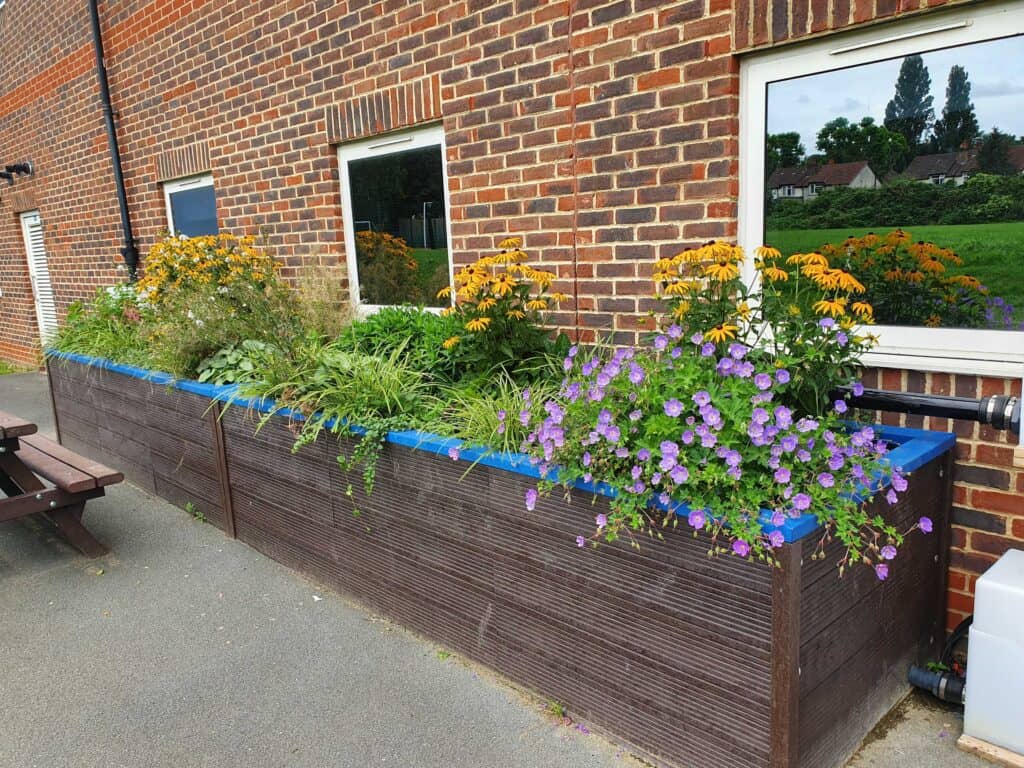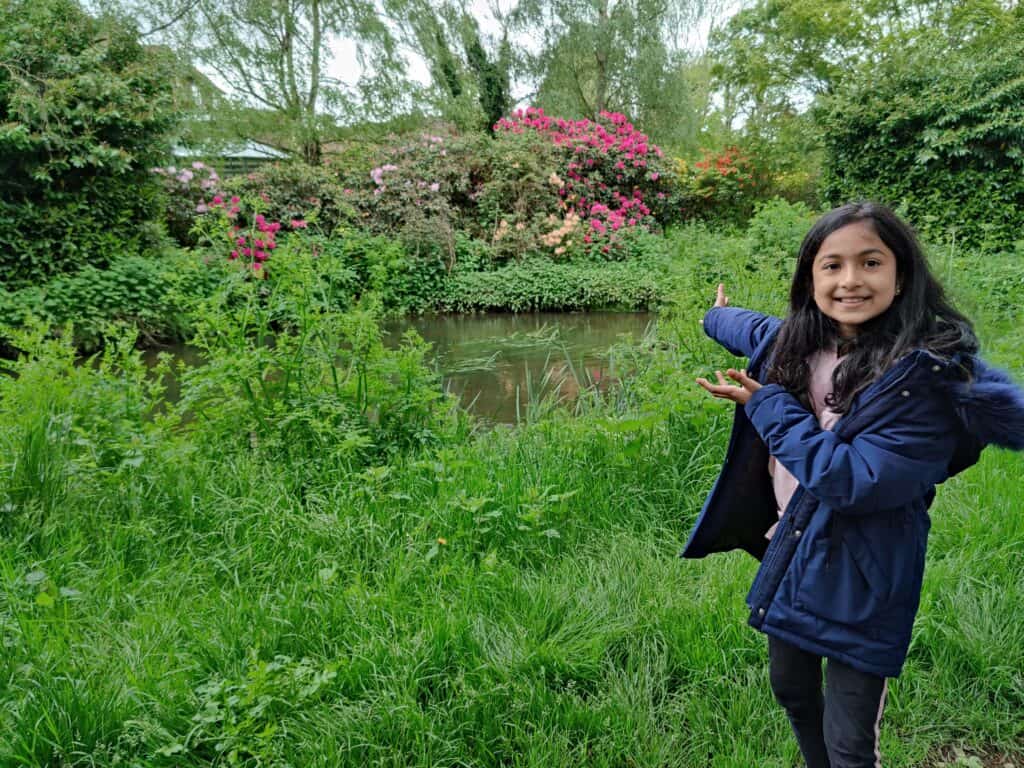Jonathan Dean, our Education Development Officer, writes about how the South East Rivers Trust education programme is evolving to address our climate and ecological emergency.
When environmental education really got going more than half a century ago, there was a belief that it would increase environmental awareness and lead to more pro-environmental behaviour.
Research is now proving that our colleagues only got it half right. Environmental education does raise awareness of the climate and ecological emergency, but it doesn’t automatically lead to pro-environmental behaviour. For that, we need promise sticks and sit spots.
A recent RSPB report highlighted that four out of five children in the UK are not connected to nature, specifically their sense of their relationship with the natural world. There are five pathways to nature connectedness: noticing, feeling, beauty, celebration, and care for the natural world.
We’ve taken inspiration from the nature connectedness research group at Derby University to play our part in improving this relationship for the wellbeing of humans and nature.
We’re pleased to be officially including nature-connection activities in all our Project Kingfisher sessions from this September onwards, following successful trials in the previous year. We still deliver learning linked to the National Curriculum, but more than 80% of feedback from teachers and pupils has highlighted that our new nature connection activities are the most popular and memorable parts of the session.
“In the interactive walk they honestly just loved being in nature. So many kids don’t get a chance to be in and explore nature and they loved it!! Pooh sticks was great fun!!” Hillbrook Primary School wrote on our feedback form.
What are promise sticks and sit spots and how do they work?
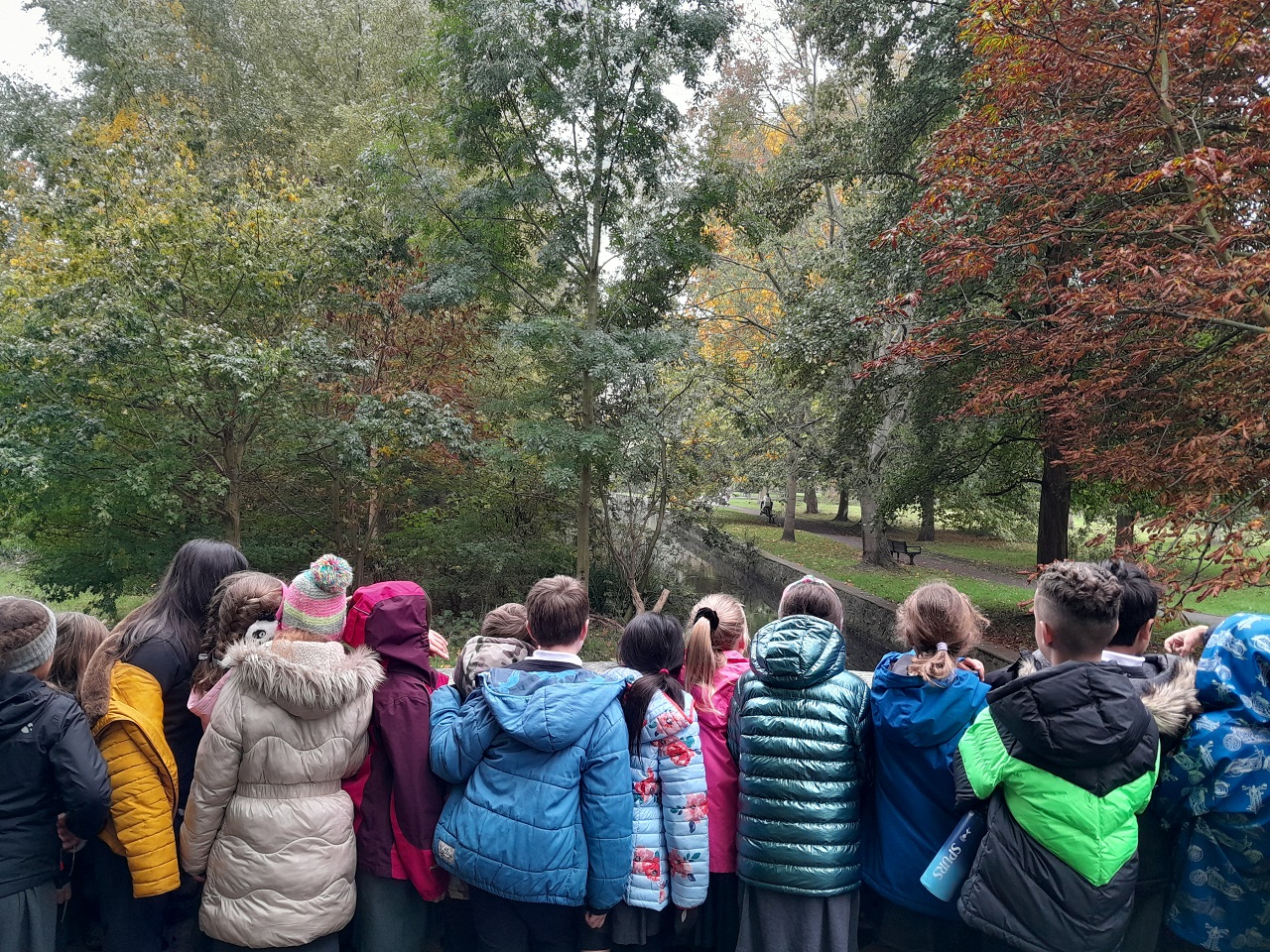
Promise sticks and sit spots are activities designed with the five pathways in mind, to improve young people’s connection to nature.
Promise sticks are a nature-connected version of the classic “Pooh sticks”. At the end of a busy session, having learned all about river features, wildlife and the challenges faced by our streams and rivers, ‘promise sticks’ is a chance to reflect on learning, make meaning of what’s been seen and make a promise to take care of nature.
Children search out their favourite stick and come back together as a group. Each child, holding their stick firmly in both hands, quietly makes a promise of action they will take to care for their river.
They might promise to pick up litter, reduce their water consumption, or bring friends along to share their newfound knowledge.
The key is, we (the grown-ups) don’t get to know what the promise is: it’s between them, the promise stick, and the river! From a bridge over the river, children take their turn to give their promise to the river and watch their promise stick flow downstream – and out to sea. They have made a promise to all of it, to do their bit for now and the future.
Taking a quiet moment
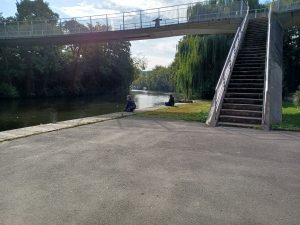
Sit spots are a formalised way of taking a quiet moment for yourself. We were hesitant when we first trialled this activity. We wondered if 30 primary school children would manage to sit or stand quietly at the water’s edge for five whole minutes and take the opportunity to connect with the sights and sounds of the environment.
We couldn’t have been more wrong! Sometimes it takes a few moments for the pupils to settle in, but this chance to connect with the beauty of nature and feel alive through the emotions and feelings that nature brings, has yielded some of the most powerful learning experiences for the children we work with.
Here are a couple of comments from pupils who we took to the River Wandle at Ravensbury Park – proof of the simplicity involved in nature:
“School is always go, go, go, so it was great to have time to just chill out, have some peace and quiet and enjoy nature.”
“I noticed the female duck had a blue patch on its side which I never saw before.”
We don’t always call them back after five minutes either, we tell them to come back when they think five minutes has passed. It’s not uncommon for us to witness children paying close attention to the ripples, the fluttering leaves and the floating birds for up to ten minutes. We’re proud to be able to provide these opportunities to young people and give them a bit of respite from hustle and bustle of daily life at school.
Our Project Kingfisher sessions are available across the Beverley Brook, Wandle and Hogsmill river catchments in south London.
Elsewhere, Our River, Our Water continues to run as a partnership programme with other rivers trusts across part of Berkshire, Hampshire, south London, Surrey, Sussex and Kent.
These latter sessions are free and some schools are eligible to apply for support with the costs of transport to get to our river education sites. Check out our website for more information.
Visit our education webpage for details of all sessions and how to book.
Also read: Seven reasons to put the local river on the school curriculum.

